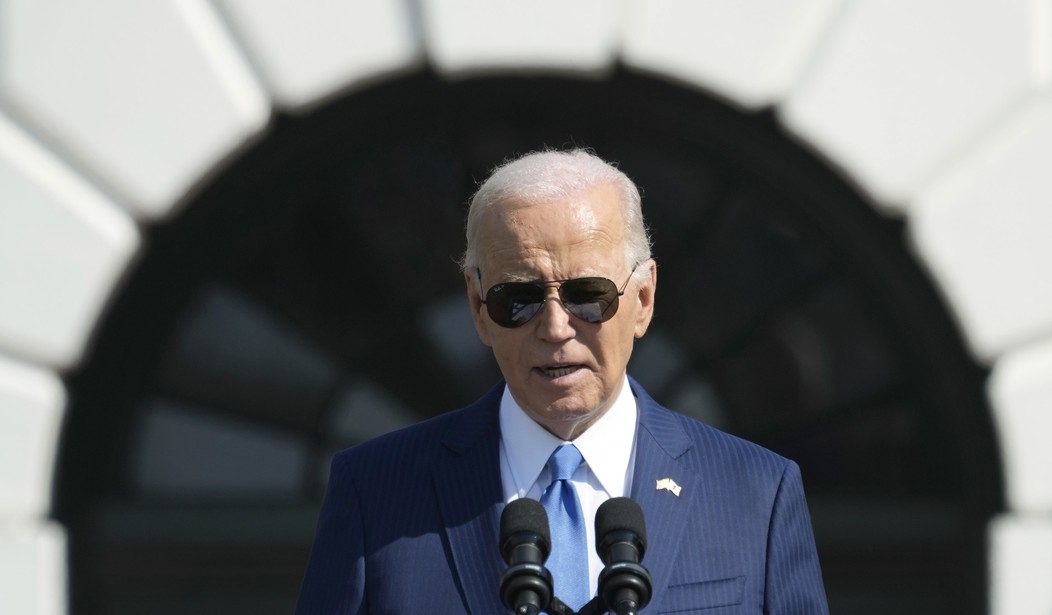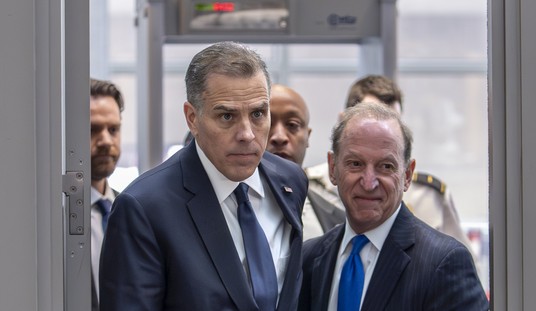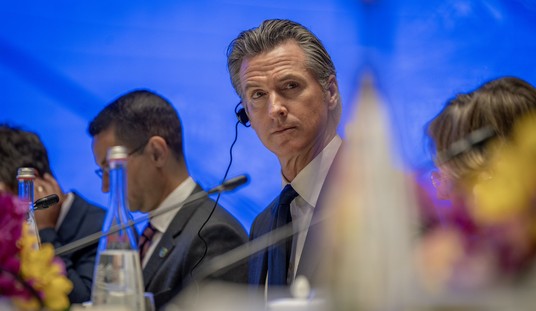If Joe Biden has his way, the American people will soon be committed to abide by the terms of a new international treaty … without any American elected official other than Biden having signed off on the decision. That’s wrong, that’s unconstitutional, and it’s got to be stopped.
Apparently, the thinking among international healthcare bureaucrats and the diplomats who pay attention to them is that the World Health Organization (WHO) did such a good job leading the international healthcare bureaucrats’ response to the COVID-19 outbreak that the organization should be given even more power to prevent and prepare for and – eventually – manage the response to the next global outbreak of a disease.
That’s why diplomats and healthcare bureaucrats have been negotiating what amount to two new international treaties – first, amendments to the already-existing International Health Regulations (IHR), and, second, a new pandemic preparedness treaty – to be finalized at the 77th World Health Assembly, beginning on May 27.
The new international treaty in question, the World Health Organization Pandemic Agreement, will centralize future efforts to prevent, prepare for, and respond to global pandemics in the World Health Organization (WHO).
Worse, the Biden administration will not say if it plans to submit the agreement to the Senate for ratification as the Constitution requires.
This is all outrageous, on multiple levels.
First, the WHO’s performance during the COVID-19 outbreak was horrible. The international healthcare bureaucracy covered for the Chinese Communist Party’s decisions to hide from the international community the true origins and nature of the illness, its refusal to share genomic sequences of the disease, and its denial of access by international experts to assess the situation. Consequently, the outbreak was worse than it otherwise would have been.
Recommended
The American public certainly wasn’t impressed by the WHO’s performance during the COVID outbreak. A May 2021 Pew Research survey revealed that 51 percent of Americans surveyed gave the organization a “poor” or “only fair” rating when asked about the organization’s “job of dealing with the coronavirus outbreak.”
The proper response to the WHO’s failures during COVID-19 is not to give it more power. The proper response is to rely on it less.
Even more troubling than the idea of giving the WHO more authority is the fact that the Biden administration has not confirmed that it will submit to the Senate for ratification any new international agreement it wishes to make binding on the American public.
The possibility that the Biden administration could attempt to commit the United States to abide by the terms of this new agreement without Senate ratification is so concerning that Senator Ron Johnson, Republican of Wisconsin, introduced S. 444, the “No WHO Pandemic Preparedness Treaty Without Senate Approval Act” – and then got 47 of his fellow senators to cosponsor it with him.
Johnson’s measure is legislation that would only go into effect if, in addition to passing the Senate, it also passed the House and was then signed into law by the president. That makes its enactment and implementation an iffy thing at best.
Recognizing this, two weeks after Johnson dropped his bill in the hopper, Senator Jim Risch, Republican of Idaho and the senior Republican on the Senate Foreign Relations Committee, offered a different take and a different solution – instead of pushing for a bill that might or might not become law based on actions external to the Senate, why not simply focus on achieving the same outcome by confining the necessary legislative action to the Senate, by making the resolution a Senate rule?
Accordingly, Risch introduced S.Res. 81, the “World Health Organization Pandemic Treaty Implementation Resolution,” under which “the Senate declares that it shall not be in order for the Senate to consider any bill … or any conference report authorizing or providing budget authority to implement, in whole or in part, any international pandemic preparedness, prevention, and response” treaty, and declares that “This section shall remain in effect until the date on which the President submits the agreement … to the Senate as a treaty for its constitutional advice and consent.” That is, it would become a new Senate rule that the Senate could not even consider any legislation funding the implementation of any international pandemic treaty until the president submitted the agreement to the Senate for ratification.
Johnson and Risch remember what happened in 2015, when the Obama administration entered into an agreement with the Islamic Republic of Iran, and others, without Senate ratification. The senators are determined to avoid a similar outcome.
The Founders split the responsibility for entering into agreements with foreign nations. Explaining why, Alexander Hamilton wrote in Federalist No. 75, “The essence of the legislative authority is to enact laws, or, in other words, to prescribe rules for the regulation of society; while the execution of the laws, and the employment of the common strength, either for this purpose or for the common defense, seem to comprise all the functions of the executive magistrate. The power of making treaties is, plainly, neither the one nor the other.”
Consequently, the treaty-making power is defined in Article II of the Constitution, regarding the executive: “He shall have Power, by and with the Advice and Consent of the Senate, to make Treaties, provided two-thirds of the Senators present concur …”
That’s a clear definition of responsibilities. The Constitution makes it clear: If the Biden administration wants to bind the American public to a treaty enhancing the power and authority of the World Health Organization over the international response to future global pandemics – surely, based on the WHO’s miserable track record, a prospect that must keep at least some Biden administration officials concerned – it must submit that international agreement to the Senate for ratification by a two-thirds majority. It’s as simple as that.
Jenny Beth Martin is Honorary Chairman of Tea Party Patriots.

























Join the conversation as a VIP Member